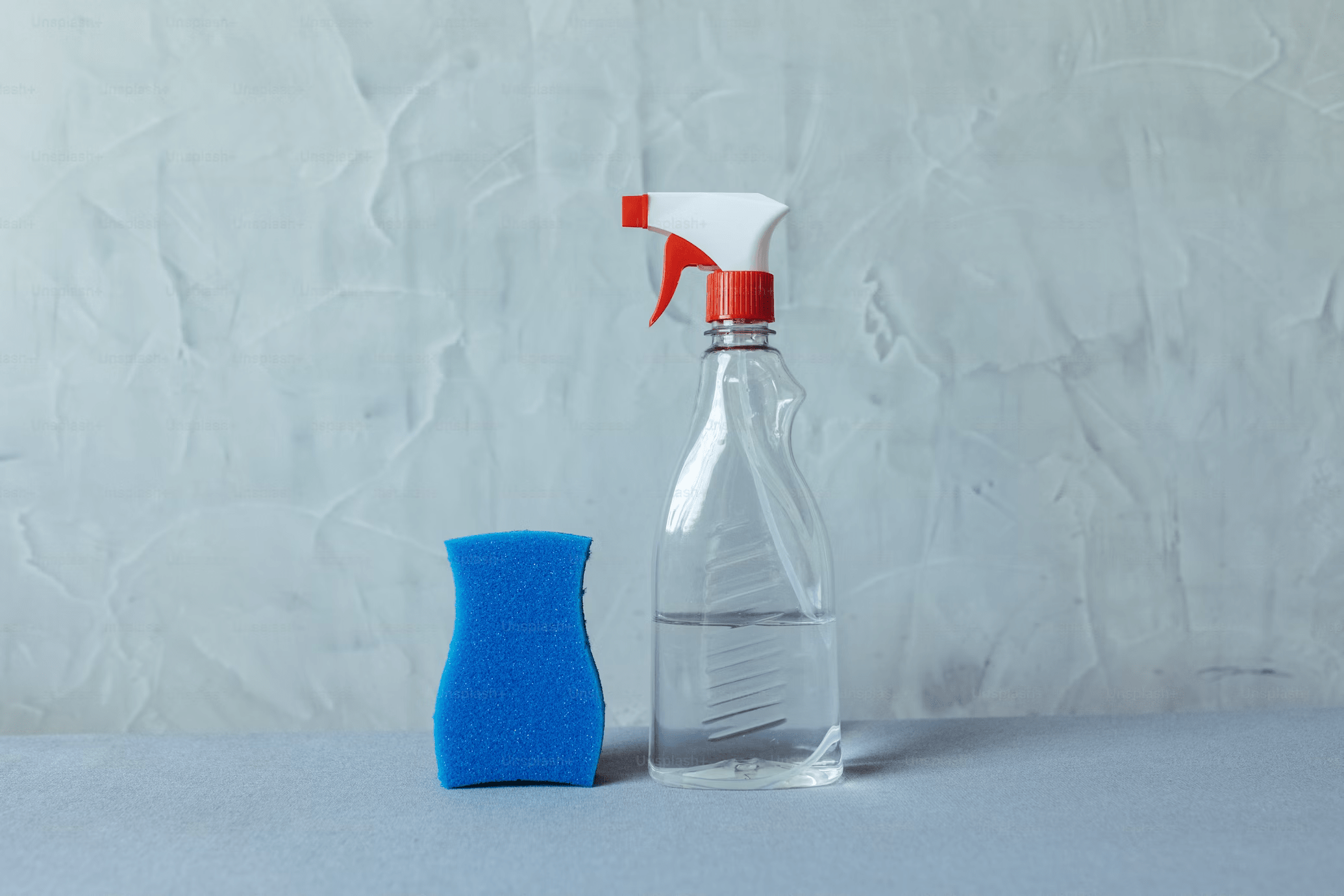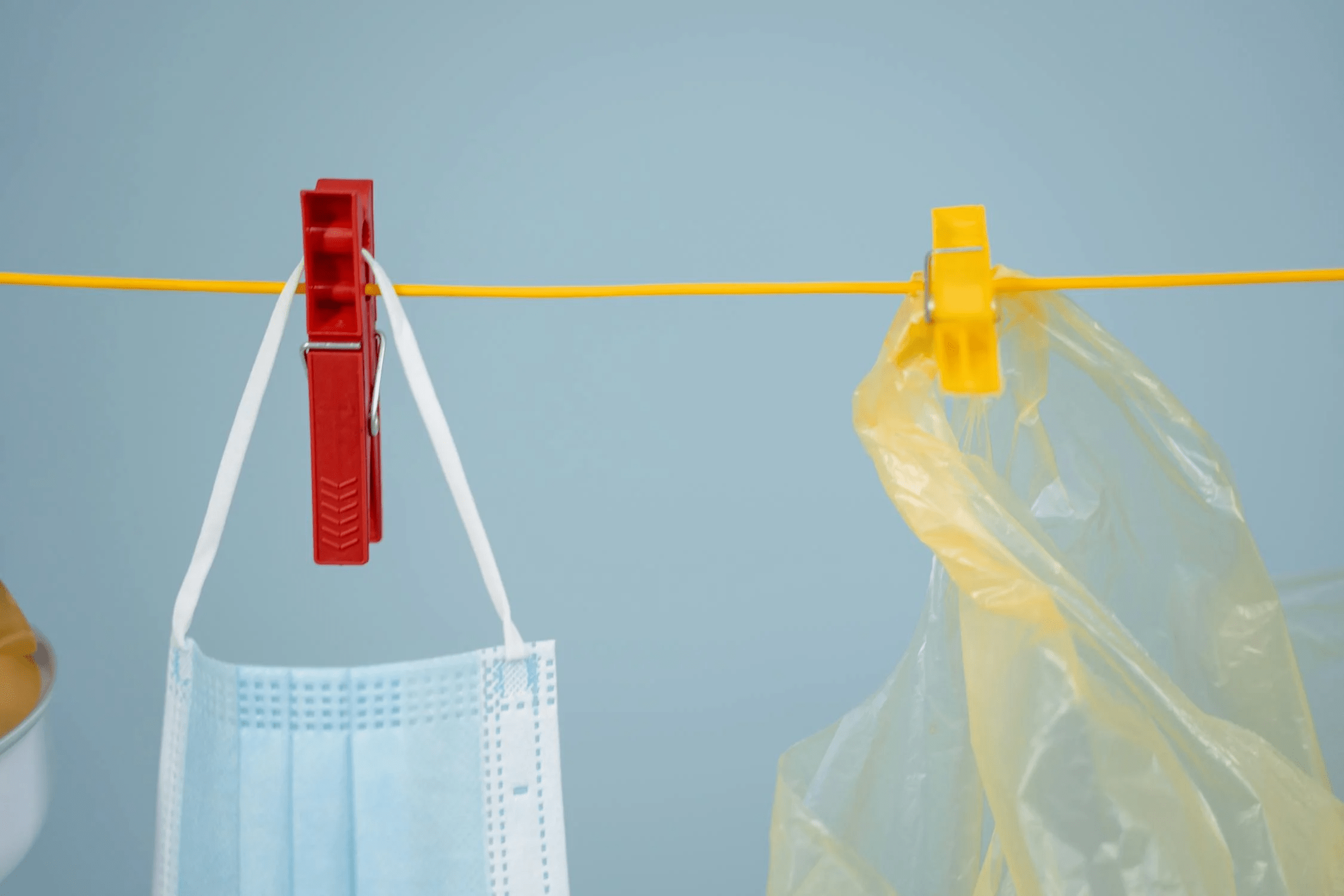67 Money Habits That Are Sabotaging Your Health & Your Wallet
If you’re looking for ways to save money, you might want to start hacking at habits that are not only draining your wallet but also sabotaging your physical fitness. Some of these habits (like smoking) are obvious but many are seemingly harmless but have devastating long-term consequences.
In this blog, we’ll explore just what these habits are and for each, I’ll offer some insights and practical solutions to help you make positive changes. By identifying these habits and taking steps to address them, you can pave the way for a healthier, more financially stable future.
1. Smoking
Smoking kills. Eventually. And will drain your bank account while at it.
Why it drains your wallet and health: The average smoker spends nearly $3M in tobacco-related costs over a lifetime of smoking. But that’s not even the worst of it. Smoking makes all other health issues way worse, including heart disease, respiratory diseases, cancer, arthritis, and gum and tooth diseases. Not to mention smokers are less likely to get pregnant, and are more likely to have bone issues.
Smoking in general leads to potential medical expenses and a reduced quality of life.
How to quit: Set a quit date, inform friends and family for support, and consider nicotine replacement therapy or prescription medications. Use apps or support groups to stay accountable, and redirect the money you save towards a rewarding goal.
2. Coffee Addiction
Personally, I don’t find coffee spending drastic. Sometimes, a good cup of coffee is simply a necessity. But while moderate coffee consumption can have health benefits, excessive intake can be problematic.
Why it drains your wallet and health: Daily visits to coffee shops can quickly add up, potentially costing hundreds of dollars per month. If you’re starting to notice changes to your sleep, have developed anxiety and digestive issues, then you may be suffering from the effects of caffeine overconsumption.
How to cut back: Gradually reduce your intake, switch to homemade coffee, or explore coffee alternatives. Set a coffee budget and put the savings towards a personal goal.

Image by Andrea Piacquadio on Pexels
3. Eating Out Frequently
Dining out regularly can be a significant drain on your finances and potentially your health.
Why it drains your wallet and health: Restaurant meals are generally more expensive than home-cooked alternatives. They often contain higher amounts of calories, salt, and unhealthy fats, which can contribute to weight gain and associated health issues.
How to reduce: Plan your meals for the week, learn to cook simple, healthy recipes, and limit eating out to special occasions. Use meal prep techniques to have convenient options readily available.
Related: 6 Easy-To-Do Meal Prep Recipes for Beginners
4. Bottled Water Consumption
Perhaps it’s time to switch up to a water bottle and save a pretty penny in the long run.
Why it drains your wallet and health: The cumulative cost of bottled water is much higher than tap water. Additionally, plastic bottles contribute to environmental pollution, which indirectly affects public health.
How to stop: Invest in a reusable water bottle and a quality water filter if needed. Make it a habit to carry your bottle with you, reducing the temptation to buy bottled water.
5. Excessive Alcohol Consumption
Alcohol is fun until it’s not. Then, you have a problem.
Why it drains your wallet and health: Alcohol is expensive, especially when consumed in bars or restaurants. It's also calorie-dense and can lead to various health issues, including liver disease and increased cancer risk.
How to cut back: Set limits on your alcohol consumption, alternate alcoholic drinks with water, and find alternative social activities that don't revolve around drinking. Consider joining support groups if you struggle to cut back on your own.
6. Impulsive Online Shopping
Yes, online shopping is convenient. But when it turns into an impulsive habit, it can lead to overspending and severe mental stress.
Why it drains your wallet and health: Unnecessary purchases can quickly deplete your savings and lead to financial strain. The instant gratification from shopping can also become addictive, and as with anything addictive, it quickly goes wrong.
How to control: Implement a "cool-off" period before making non-essential purchases. Unsubscribe from marketing emails and use website blockers during vulnerable times. Create a budget for discretionary spending and resolve to stick to it.
Image by Surface on Unsplash
7. Tanning
No pain, no gain, they say? Well, when it comes to tanning, it’s simply not worth it.
Why it drains your wallet and health: Tanning salon memberships or frequent purchases of tanning products can be expensive. More importantly, excessive UV exposure significantly increases the risk of skin cancer, not to mention premature aging!
How to control: While it may take a while, it really is worth the effort to try to embrace your natural skin tone. Invest in good quality sunscreen and protective clothing for outdoor activities.
8. Speeding or Rushing
You might think you’re saving time but habitual speeding’s risks far outweigh any benefit you get out of it.
Why it drains your wallet and health: Speeding tickets, increased fuel consumption, and higher insurance premiums can all result from this habit. It also increases the risk of accidents, potentially leading to injury or worse.
How to avoid: Use cruise control when appropriate, leave earlier to avoid rushing, and practice mindful driving. Consider using apps that reward safe driving habits.
9. Excessive TV and Social Media Use
Around the world, the average adult spends an average of 6 hours and 40 minutes on internet-connected screens. What could go wrong?
Why it drains your wallet and health: While not directly costly, excessive screen time can lead to reduced productivity, potentially impacting career growth and earnings. It can also contribute to a sedentary lifestyle, eye strain, and poor sleep quality.
How to reduce: Set specific times for TV and social media use. Use screen time tracking apps and create tech-free zones in your home. Replace some screen time with physical activities or hobbies.
10. Rushing and Multitasking
In life, sometimes what seems more convenient ends up being the biggest nuisance. The same can be said for rushing.
Why it drains your wallet and health: Rushing often leads to mistakes, which can be costly to fix. It also increases stress levels, potentially leading to burnout and health issues.
How to stop: Practice time management techniques, learn to prioritize tasks, and focus on one thing at a time. Use tools like TaskSpur to organize your day and reduce the need for last-minute rushes.

Image by Jack Sparrow on Pexels
11. Fast Food Consumption
This one is serious. Your relationship with food determines your overall quality of life. Consuming fast food is not just bad, it has a direct effect on how you live.
Why it drains your wallet and health: While seemingly cheap, frequent fast-food meals add up quickly. These foods are often high in calories, unhealthy fats, and sodium, contributing to obesity and related health issues.
How to reduce: Plan your meals in advance, learn quick and healthy recipes, and keep nutritious snacks on hand. When eating out, choose healthier options and control portion sizes.
12. Overuse of Credit Cards
A recent study finds that people spend more when they don’t have to pay in cash. Be judicious about your spending, especially because these days, it’s so easy to do so.
Why it drains your wallet and health: High-interest rates on credit card debt can quickly snowball. Before you know it, you’re drowning in debt. Financial strain is never good for your peace of mind. It’s also bound to take a toll on your quality of life.
How to control: Create a budget and stick to it. Use cash or debit cards for daily expenses. If you use credit cards, pay the full balance each month. Consider consolidating debt if you're struggling with multiple cards.
13. Skipping Meals
Regularly skipping meals can seem like a time-saver but often backfires.
Why it drains your wallet and health: Skipping meals can lead to overeating later, often resulting in poor food choices and potential weight gain. It can also decrease productivity and energy levels, potentially impacting work performance and earnings.
How to stop: Plan your meals in advance, including healthy snacks. Use meal prep techniques to have quick, nutritious options available. Set reminders to eat at regular intervals.
14. Substance Abuse
Addiction to drugs or other substances can have devastating effects not just on your health but on all aspects of your life.
Why it drains your wallet and health: The direct cost of substances, potential legal issues, and loss of productivity can cause havoc on your finances. Health consequences can be severe, ranging from organ damage to mental health disorders.
How to overcome: Seek professional help immediately. Utilize support groups, therapy, and rehabilitation programs. Build a support network of friends and family to assist in recovery. Image by thom masat on Unsplash
Image by thom masat on Unsplash
15. Overuse of Air Conditioning or Heating
Blasting that AC all day and night hurts more than just your energy bills.
Why it drains your wallet and health: Constantly running AC or heating systems significantly increases your energy costs. Extreme temperature differences between indoors and outdoors can also be detrimental to your immune system.
How to reduce: Use programmable thermostats to optimize temperature settings. Improve home insulation and use natural methods (like opening windows or using fans) when possible. Gradually acclimate to slightly higher or lower temperatures to reduce reliance on climate control.
16. Excessive Use of Rideshare Services
While convenient, the cost of over-relying on rideshare apps can quickly add up.
Why it drains your wallet and health: Frequent use of rideshare services can quickly add up, often costing more than owning a car or using public transportation. It can also lead to a more sedentary lifestyle if used in place of walking or biking.
How to cut back: Plan your trips in advance and consider alternatives like public transportation, carpooling, or biking for shorter distances. Set a monthly budget for rideshare services and track your usage.
17. Hoarding
Accumulating unnecessary items can have financial and psychological impacts.
Why it drains your wallet and health: Hoarding leads to unnecessary purchases and potential storage costs. It can also create unsafe living conditions and contribute to anxiety and stress.
How to stop: Practice mindful purchasing by questioning the necessity of new items. Regularly declutter your living space and consider donating or selling unused items. Seek professional help if hoarding tendencies are severe.
18. Neglecting Home Maintenance
Putting off regular home maintenance can lead to even more costly repairs (and even major inconvenience) down the line.
Why it drains your wallet and health: Minor issues can escalate into major, expensive problems if left unaddressed. Neglected homes can also harbor health hazards like mold or pest infestations.
How to improve: Create a home maintenance schedule and stick to it. Set aside a portion of your income for home repairs and updates. Learn basic DIY skills for minor fixes.

Image by Zohair Mirza on Unsplash
19. Overreliance on Supplements Without Professional Guidance
Supplements are great but like all things, it should be done in moderation — and with informed guidance.
Why it drains your wallet and health: Supplements can be expensive, especially when taken unnecessarily. Some supplements can interact negatively with medications or cause side effects if taken in excess.
How to address: Consult with a healthcare professional before starting any supplement regimen. Focus on getting nutrients from a balanced diet first. Regularly review your supplement intake with your doctor.
20. Excessive Noise Exposure
Constant exposure to loud noises, whether from music, traffic, or other sources, can have long-term consequences.
Why it drains your wallet and health: Hearing damage from noise exposure can lead to the need for hearing aids, which are expensive. It can also contribute to stress, sleep disturbances, and decreased productivity.
How to reduce: Use noise-cancelling headphones when in loud environments. Keep the volume at a reasonable level when listening to music. Consider soundproofing options for your home if external noise is an issue.
21. Improper Ergonomics at Work or Home
Bad posture has been shown by studies to have far-reaching consequences for one’s physique.
Why it drains your wallet and health: Ergonomic-related health problems like back pain or carpal tunnel syndrome can result in medical expenses and lost productivity. They can also significantly impact quality of life.
How to improve: Invest in ergonomic office equipment like a proper chair and adjustable desk. Take regular breaks to stretch and move. Consult with an ergonomics expert if possible to optimize your workspace.
22. Gambling
Gambling can be an enticing pastime, offering the thrill of potential winnings and excitement. However, even occasional betting can quietly evolve into a destructive habit.
Why it drains your wallet and health: The financial losses from gambling can be substantial and lead to debt. It can also cause stress, anxiety, and strain on relationships.
How to stop: Recognize gambling as a form of entertainment with a cost, not a way to make money. Set strict limits on gambling activities and stick to them. Seek help from support groups or professionals if gambling becomes compulsive.
 Image by Tima Miroshnichenko on Pexels
Image by Tima Miroshnichenko on Pexels
23. Overuse of Plastic Products
From takeout containers to bottled water, the costs add up faster than we realize, while the environmental impact lingers for centuries.
Why it drains your wallet and health: While individual plastic items may seem cheap, the cumulative cost adds up. The environmental impact of plastic pollution indirectly affects human health through contaminated food and water sources.
How to reduce: Invest in reusable alternatives like cloth bags, metal straws, and glass containers. Be mindful of packaging when shopping and choose products with less plastic when possible.
24. Not Setting Goals
Without specific objectives, it's easy to let healthy habits slide or to overspend on impulse purchases that don't align with any long-term plan.
Why it drains your wallet and health: Without goals, you may lack direction in career and personal development, potentially missing out on growth opportunities. This can impact earning potential and overall life satisfaction.
How to improve: Use goal-setting techniques like SMART goals. Utilize tools like TaskSpur to set, track, and achieve your goals effectively. Regularly review and adjust your goals as needed.
25. Neglecting Sleep
Chronic sleep deprivation weakens your body, clouds your judgment, and hampers your productivity. Over time, this can lead to increased medical expenses, poor financial decisions, and missed career opportunities.
Why it drains your wallet and health: Lack of sleep can lead to decreased productivity, potentially impacting career advancement and earnings. It also increases the risk of various health issues, including obesity, cardiovascular disease, and mental health problems.
How to improve: Establish a consistent sleep schedule. Create a relaxing bedtime routine and optimize your sleep environment. Limit screen time before bed and consider using sleep tracking apps to improve your sleep quality.
26. Excessive Use of Chemical Cleaning Products
The quest for a spotless home might be costing you more than you think.
Why it drains your wallet and health: Specialized cleaning products for different purposes can quickly add up in cost. Exposure to strong chemicals can cause respiratory issues and skin irritation.
How to reduce: Opt for natural cleaning alternatives like vinegar and baking soda. Use microfiber cloths to reduce the need for cleaning products. When using chemicals, ensure proper ventilation and follow safety guidelines. Image by JSB Co. on Unsplash
Image by JSB Co. on Unsplash
27. Ignoring Dental Health
Brushing off regular dental care might seem like a small oversight, but it can lead to big problems down the line.
Why it drains your wallet and health: Dental problems, if left untreated, can become expensive to fix. Poor dental health has also been linked to various systemic health issues, including heart disease.
How to improve: Schedule regular dental check-ups and cleanings. Practice good oral hygiene daily, including flossing. Consider investing in an electric toothbrush for more effective cleaning.
28. Overcommitting to Subscriptions
It starts innocently enough—a streaming service here, a meal kit there—but before you know it, you're juggling multiple subscriptions that eat away at your monthly budget.
Why it drains your wallet and health: Multiple subscriptions, even if individually cheap, can add up to a significant monthly expense. The stress of managing multiple services and potential overspending can impact mental well-being.
How to control: Regularly review your subscriptions and cancel those you don't use frequently. Consider sharing subscriptions with family or friends where possible. Use subscription management apps to keep track of your recurring expenses.
29. Excessive Phone Usage
Constantly scrolling and tapping doesn't just eat up hours of our day—it can lead to issues both physical, mental, an financial.
Why it drains your wallet and health: Excessive phone use can lead to higher data charges and frequent device upgrades. It can also contribute to neck and back problems, eye strain, and decreased face-to-face social interactions.
How to reduce: Set specific times for checking your phone. Use apps that track and limit screen time. Create phone-free zones or times in your home. Practice mindful phone use by questioning the necessity of each interaction with your device.
30. Overreliance on Convenience Apps
Food delivery apps tempt us with effortless meals, but frequent use often leads to higher food costs and less healthy eating habits.
Why it drains your wallet and health: Convenience apps often come with markups and service fees that can significantly increase costs. Overreliance on these services can also lead to a more sedentary lifestyle.
How to cut back: Plan ahead to reduce the need for last-minute deliveries. Learn to cook simple meals at home. Set a monthly budget for convenience services and track your usage. Image by freestocks on Unsplash
Image by freestocks on Unsplash
31. Neglecting Vehicle Maintenance
Putting off car maintenance might seem like a money-saver, but it's a habit that can drive both your health and finances into a ditch.
Why it drains your wallet and health: Neglected maintenance often results in costly repairs and reduced vehicle lifespan. Poorly maintained vehicles can also be safety hazards, potentially leading to accidents.
How to improve: Follow your vehicle's recommended maintenance schedule. Learn basic car care tasks you can do yourself, like checking tire pressure. Set aside money each month for vehicle maintenance and repairs.
32. Impulse Purchasing of Fitness Equipment or Health Gadgets
Financially, these purchases can quickly add up, draining your savings on equipment that may soon gather dust. The real cost isn't just monetary—it's the false sense of accomplishment that comes with buying, rather than using, these items.
Why it drains your wallet and health: These purchases can be expensive and often go unused, wasting money and space. The guilt of not using purchased items can also negatively impact mental well-being.
How to avoid: Research thoroughly before making fitness-related purchases. Consider renting equipment or trying classes before investing in home gear. Focus on sustainable, enjoyable forms of exercise that don't require expensive equipment.
33. Overuse of Scented Products
The desire for a fresh-smelling home or a signature personal scent can lead to an overreliance on scented products, but this fragrant habit may be costing more than you realize.
Why it drains your wallet and health: Constantly buying scented products adds up financially. Some artificial fragrances can trigger allergies, headaches, and respiratory issues in sensitive individuals.
How to reduce: Choose natural ways to freshen your space, like opening windows or using essential oils. Be mindful of the number of scented products you use simultaneously. Consider unscented alternatives for everyday products like laundry detergent.
34. Excessive Use of Disposable Products
These single-use items create a constant drain on your budget through frequent repurchases.
Why it drains your wallet and health: The cost of constantly repurchasing disposable items adds up quickly. The environmental impact of these products indirectly affects human health through pollution and resource depletion.
How to cut back: Invest in reusable alternatives like cloth napkins, washable cleaning cloths, and durable food containers. When disposables are necessary, opt for biodegradable or recyclable options. Image by MART PRODUCTION on Pexels
Image by MART PRODUCTION on Pexels
35. Neglecting to Update Prescriptions
Unused gym memberships waste money while inducing guilt, streaming services you've outgrown consume time and cash, and outdated app subscriptions drain your account for no benefit.
Why it drains your wallet and health: Outdated prescriptions may not address your current health needs, potentially leading to other health issues or complications. This can result in additional medical expenses and decreased quality of life.
How to improve: Schedule regular check-ups with your healthcare providers. Set reminders for prescription renewals and follow-up appointments. Keep a record of your prescriptions and their expiration dates.
36. Overwatering Lawns or Excessive Landscaping
Maintaining a perfect lawn or elaborate landscaping can be water-intensive and expensive.
Why it drains your wallet and health: Overwatering increases water bills and can lead to fungal growth or pest problems. Excessive use of fertilizers and pesticides for landscaping can be harmful to health and the environment.
How to reduce: Learn about drought-resistant landscaping and native plants that require less water. Install a smart irrigation system or use a timer for watering. Consider alternatives to traditional lawns, like rock gardens or native plant beds.
37. Frequent Attendance at Loud Events
Regular exposure to loud concerts, sporting events, or nightclubs can impact hearing over time.
Why it drains your wallet and health: Ticket prices and associated costs for frequent events can be substantial. Repeated exposure to loud noises can lead to hearing loss and tinnitus, potentially requiring expensive treatments.
How to protect yourself: Limit attendance at extremely loud events. When you do attend, use high-quality earplugs to protect your hearing. Take breaks in quieter areas during events to give your ears a rest.
38. Overuse of Personal Care Services
While self-care is important, excessive use of services like manicures, hair styling, or spa treatments can be financially draining.
Why it drains your wallet and health: Frequent professional treatments can quickly become a significant expense. Some treatments, if done excessively, can damage hair, skin, or nails.
How to balance: Learn to do basic treatments at home. Limit professional services to special occasions or spread them out over longer intervals. Consider DIY spa days with friends as a more affordable alternative.
 Image by Valeria Boltneva on Pexels
Image by Valeria Boltneva on Pexels
39. Neglecting to Rotate or Replace Mattresses and Pillows
Using old or worn-out bedding can impact sleep quality and overall health.
Why it drains your wallet and health: Poor sleep due to inadequate bedding can lead to decreased productivity and potential health issues. Dust mites and allergens can accumulate in old mattresses and pillows, potentially causing allergies or respiratory problems.
How to improve: Follow manufacturer recommendations for rotating and replacing mattresses and pillows. Invest in quality bedding that promotes good sleep posture. Use mattress and pillow protectors to extend their lifespan.
40. Overreliance on Elevators and Escalators
Constantly choosing mechanical options over stairs lowers your daily activity level.
Why it drains your wallet and health: While not directly costly to individuals, frequent elevator use increases building energy costs, which can be reflected in higher rent or fees. Lack of incidental exercise from taking stairs can contribute to a sedentary lifestyle.
How to change: Make it a habit to take stairs for short trips (1-3 floors). Use the escalator but walk up it instead of standing still. If you must use the elevator, do some simple exercises like calf raises while waiting.
41. Overuse of Voice Assistants and Smart Home Devices
It’s not just the energy bills. Overreliance on these devices raising serious privacy concerns that may not be apparent now but can be detrimental in the future.
Why it drains your wallet and health: Smart devices consume energy even when not actively used, potentially increasing electricity bills. Overreliance on these devices can also lead to reduced physical activity and potential privacy breaches.
How to balance: Use smart devices mindfully. Turn off or unplug devices when not in use. Be aware of privacy settings and regularly review what data is being collected. Balance convenience with maintaining some manual control over your environment.
42. Excessive Use of Cloud Storage Services
Accumulating large amounts of digital data across multiple cloud services can become costly and disorganized.
Why it drains your wallet and health: Paid storage plans can add up, especially if you're subscribed to multiple services. Digital clutter can lead to stress and wasted time searching for files.
How to manage: Regularly review and delete unnecessary files. Consolidate your cloud storage to one or two primary services. Use local storage for less critical files. Implement a consistent file organization system across your devices and cloud services.
 Image by Samsung Memory on Unsplash
Image by Samsung Memory on Unsplash
43. Neglecting to Clean or Replace Air Filters
Forgetting to maintain air filters in your home and car can lead to poor air quality and its consequential health effects.
Why it drains your wallet and health: Dirty filters make HVAC systems and car engines work harder, increasing energy consumption and wear. Poor air quality can exacerbate allergies and respiratory issues.
How to improve: Set reminders to check and clean or replace filters regularly. Consider using washable filters where appropriate. Invest in a air purifier for areas of concern in your home.
44. Overreliance on GPS Navigation
Constant use of GPS can lead to decreased spatial awareness and navigation skills.
Why it drains your wallet and health: While not directly costly, overreliance on GPS can lead to inefficient routes and potential data usage charges. It can also contribute to decreased cognitive mapping abilities over time.
How to balance: Try to learn and memorize common routes without GPS. Use GPS for planning before trips, then try to navigate on your own. Practice reading physical maps to maintain spatial reasoning skills.
45. Frequent Use of Extended Warranties
Purchasing extended warranties for every device or appliance can be an unnecessary expense.
Why it drains your wallet and health: Extended warranties often cost more than the statistical likelihood of needing repairs. The stress of deciding whether to purchase warranties for every item can also be mentally taxing.
How to approach: Research product reliability before purchasing. Save the money you would spend on warranties in a separate account for potential repairs. Consider using credit cards that offer extended warranty coverage as a perk.
46. Overuse of Antibacterial Products
Excessive use of antibacterial soaps, wipes, and cleaners can be both costly and potentially harmful.
Why it drains your wallet and health: Antibacterial products are often more expensive than regular alternatives. Overuse can lead to antibiotic resistance and may disrupt the balance of beneficial bacteria on your skin and in your environment.
How to reduce: Use regular soap and water for routine hand washing. Reserve antibacterial products for specific situations where they're truly needed. Focus on proper cleaning techniques rather than relying solely on antibacterial properties.
 Image by Towfiqu barbhuiya on Unsplash
Image by Towfiqu barbhuiya on Unsplash
47. Excessive Grooming of Pets
Over-grooming or excessive professional grooming services for pets can be unnecessarily expensive.
Why it drains your wallet and health: Frequent professional grooming sessions can be a significant expense. Some grooming products or techniques, if overused, can irritate your pet's skin or cause stress.
How to balance: Learn basic grooming techniques to maintain your pet's hygiene at home. Schedule professional grooming less frequently, focusing on necessary services. Use pet-safe, gentle grooming products.
48. Overreliance on Mood-Altering Apps
Excessive use of meditation, relaxation, or mood-tracking apps can become a crutch rather than a tool for genuine well-being.
Why it drains your wallet and health: Subscription costs for multiple wellness apps can add up. Overreliance on technology for mood management can prevent the development of internal coping mechanisms.
How to balance: Choose one or two apps that truly benefit you and cancel the rest. Practice mindfulness and relaxation techniques without apps sometimes. Seek professional help if you're struggling with mood management.
49. Neglecting to Regularly Clean or Replace Workout Gear
Using old or poorly maintained workout equipment and clothing can impact your exercise routine and hygiene.
Why it drains your wallet and health: Worn-out gear may lead to injuries or reduced workout effectiveness. Infrequently washed workout clothes can harbor bacteria, potentially leading to skin issues.
How to improve: Establish a regular cleaning routine for your workout clothes and equipment. Replace shoes and other gear according to usage guidelines. Invest in quality, durable workout gear that will last longer with proper care.
50. Excessive Use of Teeth Whitening Products
Overuse of whitening treatments can damage tooth enamel and lead to sensitivity.
Why it drains your wallet and health: Professional whitening treatments can be expensive, and over-the-counter products add up over time. Excessive use can lead to tooth sensitivity and potential long-term dental issues.
How to approach: Consult with your dentist about appropriate whitening methods and frequency. Focus on maintaining good oral hygiene to prevent staining. Consider natural whitening methods like oil pulling or using baking soda occasionally.

Image by Karolina Kaboompics on Pexels
51. Overuse of Noise-Cancelling Headphones
While useful in certain situations, constant use of noise-cancelling headphones can impact social interaction and situational awareness.
Why it drains your wallet and health: High-quality noise-cancelling headphones are often expensive. Overuse can lead to social isolation and potentially dangerous situations due to reduced environmental awareness.
How to balance: Use noise-cancelling features selectively, such as in noisy work environments or during travel. Practice being present in your environment without constant audio input. Consider using open-ear headphones that allow some ambient sound in less noisy situations.
52. Neglecting to Regularly Update and Backup Digital Devices
Failing to keep devices updated and backed up can lead to security vulnerabilities and potential data loss.
Why it drains your wallet and health: Data loss can be costly if it requires professional recovery services. The stress of losing important files or dealing with a compromised device can be significant.
How to improve: Set up automatic updates and backups for your devices. Use a combination of cloud storage and local backups for important files. Regularly review and organize your digital files to ensure everything important is properly backed up.
53. Excessive Use of Virtual Reality Systems
Virtual environments offer immersive experiences but its excessive use may lead to addictive behavior and unchecked spending.
Why it drains your wallet and health: VR systems and games can be expensive. Excessive use can lead to eye strain, motion sickness, and decreased physical activity.
How to balance: Set time limits for VR use. Balance virtual experiences with real-world physical activities. Take frequent breaks and practice proper posture when using VR systems.
54. Overreliance on Meal Replacement Products
Consistently replacing meals with shakes or bars can be expensive and may not provide balanced nutrition.
Why it drains your wallet and health: Meal replacement products are often more expensive than whole foods. Relying on them excessively may lead to nutritional imbalances and missed opportunities for developing healthy eating habits.
How to balance: Use meal replacements occasionally for convenience, not as a primary food source. Learn to prepare quick, nutritious meals using whole foods. Plan and prep meals in advance to avoid relying on convenience options.
 Image by Mikhail Nilov on Pexels
Image by Mikhail Nilov on Pexels
55. Doom Scrolling on News Apps
Regularly consuming negative news and material is never good for your mental health and outlook of the world (and the people within it). When done over the long-term, it will start to affect your decisions and life choices and not for the better.
Why it drains your wallet and health: While not directly costly, excessive news consumption can lead to anxiety and decreased productivity, potentially impacting work performance. Some news apps have subscription fees that can add up.
How to reduce: Set specific times for checking news and stick to them. Curate your news sources to include a balance of information. Practice mindful media consumption, being aware of how different types of news affect your mood.
56. Overconsumption of True Crime Content
While true crime podcasts, shows, or books can be entertaining to some extent, the content of these media can negatively impact one’s mental health and sleep quality.
Why it drains your wallet and health: Subscription costs for streaming services or purchases of true crime books can add up. Overexposure to violent content can lead to anxiety, paranoia, and sleep disturbances.
How to balance: Limit true crime consumption to specific times, not before bed. Balance it with uplifting or educational content. Be mindful of how this content affects your mood and anxiety levels.
57. Overreliance on "Buy Now, Pay Later" Services
While attractively convenient, using deferred payment options can only lead to accumulated debt and financial stress if managed poorly.
Why it drains your wallet and health: These services can encourage overspending and lead to multiple payment obligations that are hard to track. The stress of managing multiple payments can impact mental health.
How to avoid: Use these services sparingly, if at all. Create a budget and save for purchases instead of deferring payments. If you must use these services, keep careful track of all payment obligations.
58. Neglecting Digital Privacy
Data breaches are no joke and if you’re not careful with your online activities, it can spiral into a life-altering case of identity theft.
Why it drains your wallet and health: Identity theft or data breaches can be costly to resolve. The stress and time involved in dealing with privacy violations can be significant.
How to improve: Regularly review and update privacy settings on all accounts. Use strong, unique passwords and a password manager. Be cautious about what information you share online and with whom.
 Image by cottonbro studio on Pexels
Image by cottonbro studio on Pexels
59. Constant Device Upgrades
Frequently upgrading to the latest smartphones, laptops, or other devices isn’t just unwise for the environment but can also be a significant financial drain.
Why it drains your wallet and health: Constant upgrades are expensive and often unnecessary. The environmental impact of electronic waste indirectly affects health.
How to reduce: Extend the life of your devices through proper care and maintenance. Only upgrade when truly necessary for functionality, not just for new features. Consider refurbished devices as a more cost-effective option.
60. Overuse of Online Trading Apps
Frequent trading, especially without proper knowledge, can and will lead to financial losses and stress.
Why it drains your wallet and health: Transaction fees and potential losses from uninformed trades can be substantial. The stress of constant market watching can impact mental health and sleep quality.
How to approach: Educate yourself thoroughly before engaging in trading. Set strict limits on the amount you're willing to invest in high-risk trades. Consider long-term, diversified investment strategies instead of frequent trading.
61. Excessive Participation in Subscription Boxes
Subscription boxes are cool and fun until it starts hacking at your monthly spending.
Why it drains your wallet and health: Monthly subscription costs add up quickly, often for items you may not need or use. Excess clutter from unused items can create stress and impact living spaces.
How to control: Regularly review the value you're getting from each subscription. Unsubscribe from boxes that consistently provide items you don't use. Consider alternating months for subscriptions you enjoy but don't need monthly.
62. Neglecting to Use Vacation Days
Failing to take earned time off can lead to burnout and decreased job satisfaction.
Why it drains your wallet and health: Unused vacation days often equate to lost compensation. Lack of adequate rest and recreation can lead to stress, decreased productivity, and potential health issues.
How to improve: Plan your vacation days in advance throughout the year. Even if you can't travel, use days off for local activities or personal projects. Communicate with your employer about the importance of taking time off.
 Image by Mikhail Nilov on Pexels
Image by Mikhail Nilov on Pexels
63. Excessive Use of Video Conferencing
Constant video calls, especially outside of work hours, can lead to "Zoom fatigue" and decreased work-life balance.
Why it drains your wallet and health: While not directly costly, excessive video conferencing can lead to eye strain, mental fatigue, and decreased productivity. It can also blur the lines between work and personal time.
How to balance: Suggest phone calls or email communication when video isn't necessary. Take breaks between video calls to rest your eyes and move around. Set boundaries for video call hours, especially for work-related communications.
64. Neglecting Digital File Organization
Do you store your photos and important documents on digital devices? Then it might be time to make sure you are doing it right.
Why it drains your wallet and health: While not directly costly, digital clutter can lead to decreased productivity and potential data loss. The stress of not being able to find important files can impact mental well-being.
How to improve: Implement a consistent file naming and folder structure across all devices. Regularly delete unnecessary files and organize remaining ones. Use search functions and tags to make files easily findable.
65. Overuse of "Wellness" Products Without Proven Benefits
DIYing your health can get expensive and may have long-term effects on your health.
Why it drains your wallet and health: Unproven wellness products can be expensive and may not deliver the promised benefits. Some may even have adverse effects if used improperly.
How to approach: Research the scientific evidence behind wellness claims before investing. Consult with healthcare professionals about the appropriateness of new wellness trends for your individual health needs. Focus on evidence-based wellness practices like regular exercise, balanced diet, and adequate sleep.
66. Constant Comparison Through Social Media
Regularly comparing your life to others' curated social media presence can impact self-esteem and financial decisions.
Why it drains your wallet and health: This habit can lead to unnecessary purchases in an attempt to keep up with perceived lifestyles. The constant comparison can negatively impact mental health and self-worth.
How to reduce: Limit social media usage and be mindful of your emotional reactions while scrolling. Curate your feed to include more positive and realistic content. Practice gratitude for your own life and achievements.
 Image by Angela Franklin on Unsplash
Image by Angela Franklin on Unsplash
67. Neglecting to Read Terms of Service
There is a hidden cost to ignoring the fine print.
Why it drains your wallet and health: Unread terms may include hidden fees, auto-renewals, or data sharing policies that you're not comfortable with. Dealing with unexpected charges or privacy breaches can be stressful and time-consuming.
How to improve: Take the time to skim through terms of service, focusing on sections about payments, renewals, and data usage. Use online tools that summarize terms of service in plain language. Be cautious about agreeing to terms for services you're unsure about.
Final Word
Many of these habits are seemingly small or inconsequential, but they can really take a toll on your health and financial well-being. To overcome them, you need to really pay attention to the decisions you make, and make a consistent effort to move toward positive changes. Remember, small steps taken consistently can lead to significant improvements over time.
As you work on addressing these habits, consider using a tool like TaskSpur to help you stay on track.

TaskSpur is designed to assist you in setting and achieving your goals, whether you want to break good habits or establish new ones. With features like goal setting, task management, and progress tracking, along with an integrated productivity AI assistant, TaskSpur can be your guide and partner in making lasting positive changes in life.
Here’s some awesome stuff you can do with TaskSpur:
1. Set specific goals to address bad habits. For example, you could set a goal to reduce your monthly spending on subscription services or to increase your daily physical activity to counteract a sedentary lifestyle.

2. Break down your goals into manageable tasks. TaskSpur allows you to create detailed action plans, making it easier to tackle complex habit changes step by step.
3. Track your progress. With built-in progress tracking, you can visualize your journey and stay motivated as you see improvements over time.
4. Receive reminders and notifications. TaskSpur can help you stay accountable by sending timely reminders for important tasks or habit-breaking activities.

5. Organize your efforts across different life areas. Whether you're focusing on financial habits, health-related behaviors, or productivity issues, TaskSpur's categorization features help you maintain a balanced approach to self-improvement.
6. Leverage AI assistance. TaskSpur's AI assistant, Ari, can provide personalized suggestions and help you optimize your goal-achievement strategies.
7. Celebrate your wins. As you successfully break bad habits and form new, positive ones, TaskSpur allows you to acknowledge and celebrate your achievements, reinforcing your progress.
Remember, changing habits is a journey, not a destination. It's normal to face challenges and setbacks along the way. The key is to remain consistent and persistent in your efforts. With the right tools and mindset, you can overcome these draining habits and create a healthier, more balanced, and financially stable life.
Why not start today? Download TaskSpur and begin your journey towards better habits and a more fulfilling life. Take control of your daily routines, manage your resources more effectively, and work towards the goals that truly matter to you. Your future self will thank you for the positive changes you're about to make.
About the Author
Bernard Boodeea is the CEO of Life Intelligence Group and the original engineer and founder of TaskSpur, a goal management app and passion project. Bernard hopes to incorporate agile principles into the design of products that help individuals achieve their goals in life.
Download TaskSpur on Android | Download TaskSpur on your iPhone
Sign up or Login on your browser
References
- Bushak, L. (2023, January 11). Smokers face nearly $3M in costs over a lifetime of smoking: study. MM+M - Medical Marketing and Media. https://www.mmm-online.com/home/channel/smokers-face-nearly-3m-in-costs-over-a-lifetime-of-smoking-study/
- FAND, D. B. M. R. (2024, January 9). 16 top coffee alternatives, according to experts. Forbes Health. https://www.forbes.com/health/nutrition/coffee-alternatives/
- Bottled Water Prices & Advertising. (n.d.). International Bottled Water Association. Retrieved September 20, 2024, from https://bottledwater.org/bottled-water-prices-advertising/
- Howarth, J. (2024, June 24). Alarming average screen time statistics (2024). Exploding Topics. https://explodingtopics.com/blog/screen-time-stats
- Posture and how it affects your health | Lifespan. (n.d.). Lifespan. https://www.lifespan.org/lifespan-living/posture-and-how-it-affects-your-health
- 11 Ways identity theft happens | ID Watchdog. (n.d.). https://www.idwatchdog.com/11-ways-identity-theft-happens